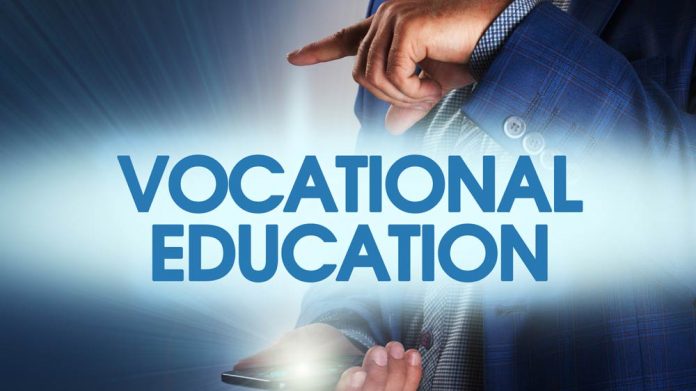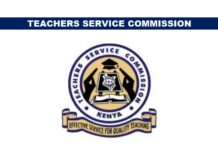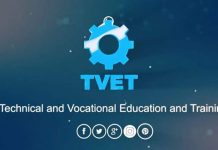
Vocational Teacher Career Guide
Vocational Teacher Job Description:
Due to the nature of vocational ed, expert-level skill in their subject is essential for vocational teachers. The ability to communicate well with the age group of their students is also very important. Younger students will need more of a supervisory instructor, while older students will often need mentoring or counseling.
Depending on the grade level taught, vocational teachers will impart an increasingly detailed level of knowledge. The goal of a career and technical education teacher is to equip students with the skills and tools they will need to enter a particular occupation.
Vocational Teacher Requirements and Common Tasks:
Career tech teachers are involved in a wide variety of tasks in their day-to-day work. Instructing students is a vocational teacher’s first priority. A vocational teacher plans lessons and gives those lessons to a group of students, often demonstrating how to safely accomplish a certain task using the proper tools and equipment.
Vocational subject instruction frequently involves various types of equipment, and teachers must instruct and supervise students in the use and care of these tools. Like other teachers, vocational teachers assess students on their progress and test them using evaluations. They also may meet with parents of students to discuss their progress or any behavioral issues. Tasks given to students are often hands-on and may include changing the tire on a car or writing software with code.
Career tech teachers most frequently instruct courses in one of 16 major career fields, which in the field of career and technical education are known as career clusters. These clusters include areas such as hospitality and tourism, manufacturing, and science, technology, engineering, and mathematics.
How to Become a Vocational Teacher
Becoming a career and technical education teacher usually involves earning a bachelor’s degree in a teachable career field, followed by earning state certificationor licensing. Many schools offer bachelor’s degrees in career and technical education to help future educators prepare for vocational teaching careers. Prospective educators should choose a program approved by its state board of education for the preparation of teachers, as this is a common requirement for teacher licensure. The common pathway to becoming a vocational teacher is as follows:
- Earn a bachelor’s degree in the subject you wish to teach or in career and technical education.
- Complete a student teaching internship in a career tech classroom.
- Take your state’s required exams for teachers.
- If your area of expertise requires a state license to practice, as is the case in fields like nursing or accounting, apply for the necessary license or credential.
- Apply for your vocational teaching license.
- Begin applying for open career and technical education jobs.
Many states also offer specialized alternative teacher certification pathways for career and technical education teachers. In some states, this allows educators enter the career tech field with only an associate’s degree or a high school diploma, along with at least five years of relevant work experience. Most states require a period of student teaching or other supervised teaching experience in order to qualify for a teaching certificate. In some career tech subjects, like accounting, a master’s degree in the subject to be taught may be preferred by some schools. Earning a graduate degree can also help vocational teachers qualify for teaching positions in colleges and/or universities.
Vocational Teacher Salary and Job Outlook:
The US Bureau of Labor Statistics reports that in 2015, career and technical education teachers in middle schools had a median wage of $55,190, in high schools a median wage of $56,130, and in postsecondary settings a median wage of $49,470.1 Salaries for vocational teachers are affected by factors including location, educational attainment, subjects taught, and job experience. Job growth for vocational teachers is expected to be around 4% through 2024.1 This somewhat limited growth is due in part to a refocus on more traditional core subjects such as English and math due to federal testing requirements that impact school funding. However, as the need increases for workers with technical skills, there will be a higher demand for vocational teachers. This is especially true at the postsecondary level, where job growth for career and technical educators is expected to reach 7% through 2024.1
Read also: TVET trainers Qualifications:
As with other teaching careers, fewer job openings will be found in suburban locales than in urban and rural schools. States like Texas that promote career and technical education statewide may hold better opportunities for vocational educators than states that do not.
Career and Technical Education Career Interviews:
- President, Alabama Association of Agricultural Education, Kelly Pritchett Mullins
Helpful Skills and Experience
Organizational skills, excellent communication and presentation skills, and sound decision-making skills are important for prospective vocational teachers. Career and technical education teachers should be calm, fair, and patient, and be able to work with students of a variety of backgrounds and levels. Technical acumen and advanced education and/or certifications in a specialty subject will make a career tech teacher more desirable. Having at least five years of work experience in a related area is a common requirement for vocational educators.
Possible Job Titles for This Career
- Technical Teacher
- Career and Technical Education (CTE) Teacher
- Technical and Vocational Education and Training (TVET) Teacher
Additional Resources
- Advance CTE: State Leaders Connecting Learning to Work – Advance CTE provides instructional tools and resources for vocational teachers, professional development opportunities, and career technical education (CTE) and funding information in each state.
- Association for Career and Technical Education (ACTE) – ACTE is the largest educational association dedicated to preparing people for careers. Their website provides information about vocational career clusters, policy and advocacy, and resources for vocational teachers.











